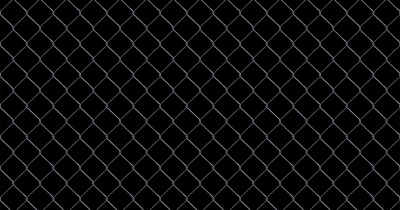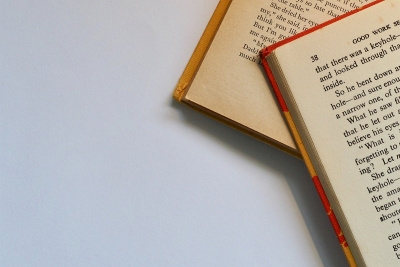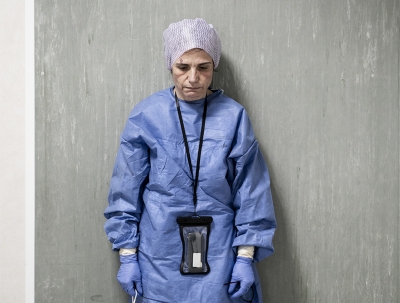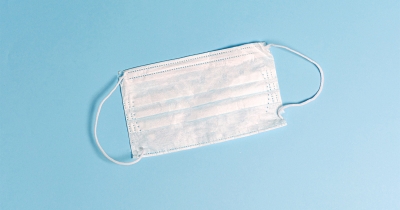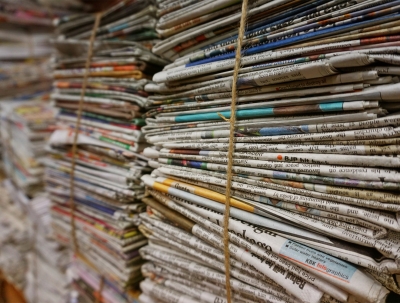Commentary
A curse on art, a curse on society: Government contempt for the ABC, the arts, and the academy
It is curious the way certain books can insinuate themselves into your consciousness. I am not necessarily talking about favourite books, or formative ones that evoke a particular time and place, but those stray books that seem to have been acquired almost inadvertently (all bibliophiles possess such volumes, I’m sure), and taken up without any particular expectations, books that have something intriguing about them that keeps drawing you back.
... (read more)In 2007, Britain’s Royal Mint issued a £2 coin commemorating two hundred years since the Act for the Abolition of the Slave Trade, the zero in ‘1807’ appearing as if a broken link in a chain. While interrupting the notorious transatlantic trade, the Act did not end slavery itself – that was achieved, at least in parts of the British world, with further legislation in 1833 that outlawed enslavement in the British Caribbean, Mauritius, and the Cape of Good Hope. Emphasis on the dramatic, if illusionary, chain-breaking moment in some bicentenary celebrations extended a tradition of dwelling on Britain’s role in slave emancipation.
... (read more)Last December, the Melbourne Age asked some prominent literary folk to name the best novel of the twentieth century. Readers would have found few surprises in the choices. Most of the punter – some novelist and a few literary critics – went for Proust’s Remembrance and Joyce’s Ulysses. Little argument there. But Ian Rankin, a Scottish crime fiction writer, chose something altogether different: Mario Puzo’s The Godfather (which, incidentally, is also Jackie Collins’ favourite novel of all time).
... (read more)In 1919 a major outbreak of pneumonic influenza threatened the livelihoods of actors and musicians throughout Australia, and forced a tense confrontation between artists and government officials in Melbourne.
... (read more)It is a truth, maybe not universally acknowledged but a truth nonetheless, that epiphanies tend to happen earlier rather than later in one’s life. Soul-shattering, life-changing experiences occur more regularly when the soul is tender enough to be shattered and the life malleable enough to be changed.
... (read more)A number of recent political events in Australia will have enduring and wide-ranging impacts on freedom of expression in this country. They include the denial of access to archival papers concerning the Whitlam dismissal, which Professor Jenny Hocking detailed in the April 2020 issue of ABR.
... (read more)I was operating when it arrived. Between patients I read the email hastily. It concerned an article from surgeons at Stanford University. Along with colleagues in the United States, Italy, China, and Iran, they were reporting an increased risk of death from Covid-19 among otolaryngologists, neurosurgeons – and ophthalmologists, like me. Surgery around the nasal passages or other mucous membranes of the face seemed to release a potentially lethal aerosolised load of the SARS-CoV-2 virus. Among the casualties were surgeons in their thirties.
... (read more)The National Archives responds to Jenny Hocking’s article on the 'Palace letters'
I read with interest Professor Jenny Hocking’s article ‘At Her Majesty’s Pleasure: Sir John Kerr and the royal dismissal secrets’ regarding the release of the ‘Palace letters’, the correspondence between Governor-General Sir John Kerr and Queen Elizabeth, covering the period of the dismissal of the Whitlam government (ABR, April 2020).
... (read more)Closeted but not isolated, everyone will have a story, so there’s nothing special here. But the common difference is clear. When it’s about Brexit or Trump there, it’s us to them; when it’s bushfires here, it’s them to us. We have been globally entwined for decades, but the economic and political truths are mostly covert. It’s taken Covid-19 to put us all overtly at the same risk at the same time.
... (read more)I grew up with The Sydney Morning Herald. In spite of enforced years in Melbourne and Canberra and sojourns overseas, I still regard it as my paper. So my business being writing and Sydney my town, it’s a matter of identity that The Herald’s reviews are the primary ones for me. But my tribal instincts are faltering. The problem is The Herald’s book coverage. My quarrel isn’t with the choice of books nor the quality of the reviews. It’s the prior matter of quantity. Over the three Saturdays of the 11, 18, 25 April, The Herald ran a total of ten full-scale book reviews. The Australian over the same period ran seventeen, and they were generally longer.
... (read more)
